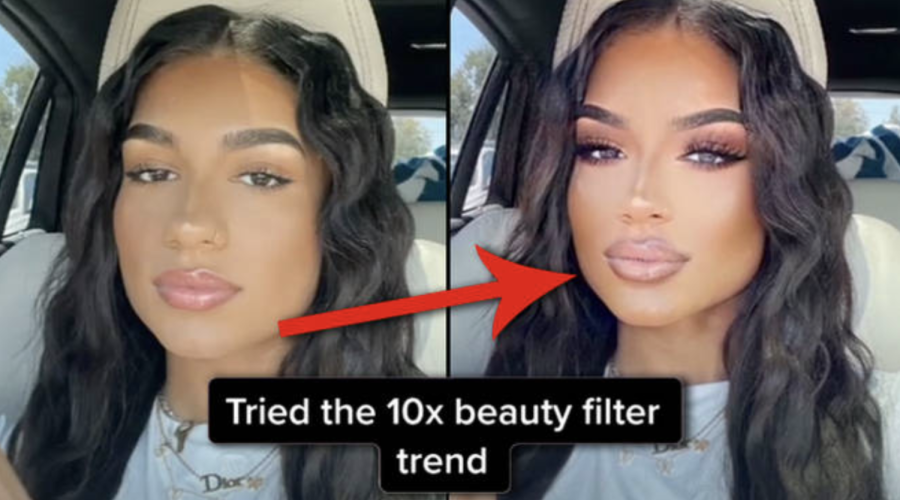Emergence of realistic beauty filters leads to unrealistic expectations
A TikTok user uses the “Bold Glamour” filter.
As Snapchat and Instagram grew in popularity during the 2010s, the use of filters also rapidly expanded. In 2016, teenagers were using the dog filter on Snapchat on a daily basis for fun.
However, in the past couple of years, especially with the emergence of TikTok, the use of beauty filters has become harmful. What was once used for fun has now become a way for people to mask insecurities online while simultaneously portraying an unrealistic image. As technology continues to grow, filters are becoming more realistic and precise.
This past week, the use of the “Bold Glamour” filter on TikTok has been trending. The “Bold Glamour” filter seemingly only applies heavy makeup seamlessly to the user. However, upon closer look, the filter actually leads to structural changes in the face, similar to plastic surgery. Essentially, users of this filter look flawless in a way that only wearing makeup is unable to achieve, leading to unrealistic expectations of how young girls should look, leading to body dysmorphia and eating disorders.
Additionally, being constantly surrounded by filters such as the “Bold Glamour” filter but also others that are more subtle but still take away your average flaws, such as acne or uneven skin tone, creates a toxic environment on social media. Being constantly bombarded with pictures or videos of content creators using such filters is not comparable to how many people look in real life, which can create harmful expectations of how young girls think they should look.
“Social media filters contributing to teens having a negative view of themselves is an extension of a growing problem that predated the social media era,” said Dr. Samuel in Teen Vogue. “Previously, people struggled with feeling that they were not meeting the standards that society deemed as the beauty ideals identified with by models on magazine covers and entertainers on TV. Now with everyone being able to use a filter to enhance their beauty with just one click, it creates a comparison trap within ourselves and others.”
To combat the negative effects of such filters, some content creators, such as Victoria Browne, have used their platforms to explain how the filters work as well as demonstrate how natural beauty should not be outshone by filters.
While beauty filters may seem like an easy way to cover up a pimple one day or feel more confident on social media, their overuse is adding to the toxic beauty standard present in society, especially amongst today’s youth.


